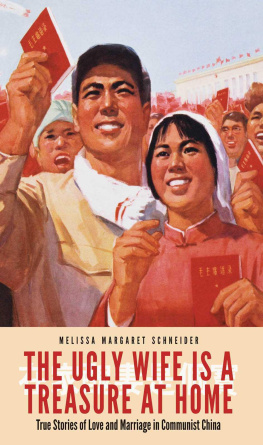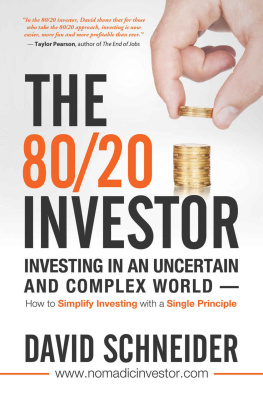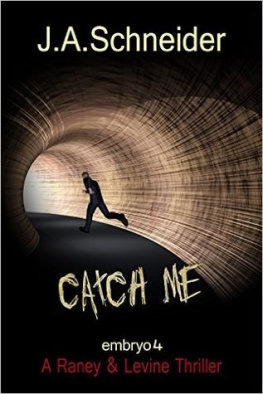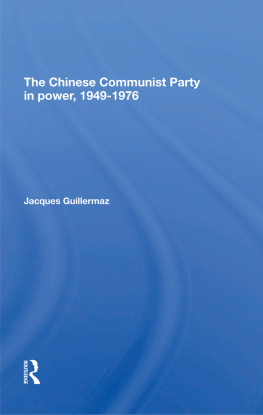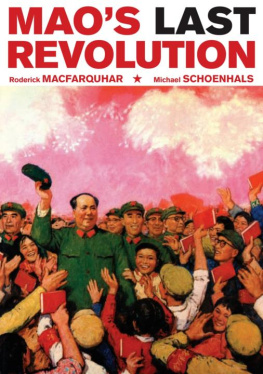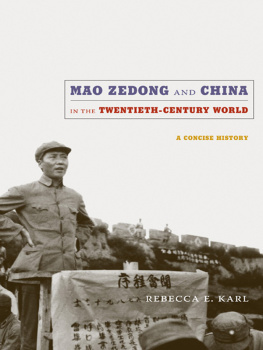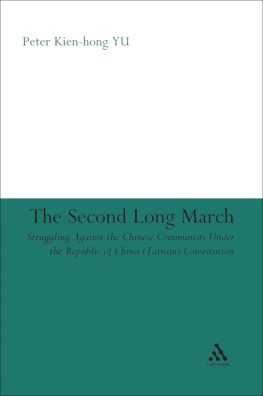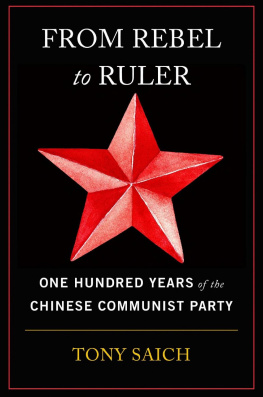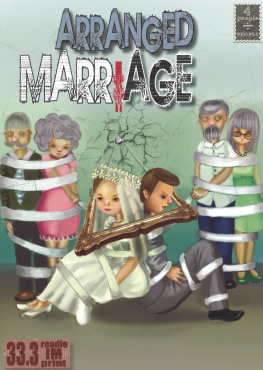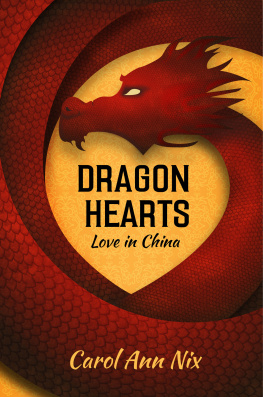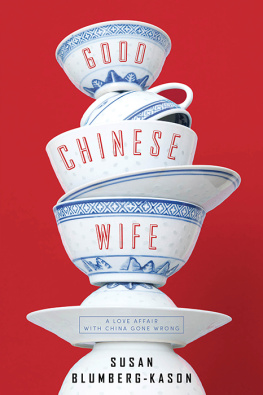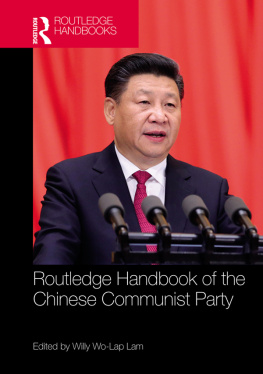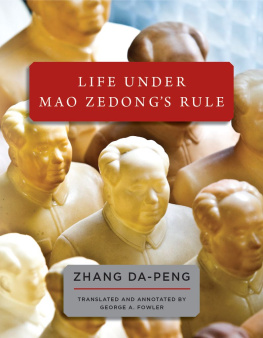THE UGLY WIFE IS A TREASURE AT HOME
THE UGLY WIFE IS A TREASURE AT HOME
True Stories of Love and Marriage in Communist China
MELISSA MARGARET SCHNEIDER

2014 by the Board of Regents of the University of Nebraska
All rights reserved. Potomac Books is an imprint of the University of Nebraska Press.
Manufactured in the United States of America.

Library of Congress Cataloging-in-Publication Data
Schneider, Melissa Margaret.
The ugly wife is a treasure at home: true stories of love and marriage in communist China / Melissa Margaret Schneider.
pages cm
Includes bibliographical references.
ISBN 978-1-61234-694-6 (pbk.: alk. paper) ISBN 978-1-61234-704-2 (pdf) 1. MarriageChinaHistory20th century. 2. Mate selectionChinaHistory20th century. 3. SexChinaHistory20th century. 4. ChinaSocial life and customs19491976. 5. ChinaSocial life and customs19762002. I. Title.
HQ684.S36 2014
306.810951090'04DC23
2014014897
Set in Quadraat by Renni Johnson.
For my husbandmy best friend,
accomplice, and punditfor
taking me to China and encouraging
me to follow my dreams.
Many people would not have fallen in love
had they not heard of it.
La Rochefoucauld, seventeenth-century
French nobleman
People have always loved a love story. But for most of
the past, our ancestors did not try to live in one.
Stephanie Coontz, marital historian
If you want to be happy and live a kings life /
Never make a pretty woman your wife.
Ugly Woman, American calypso song
CONTENTS
CHANG XING
JACK CHOU
LUCY LAI
TOM LIU
MA YAJING
MR. YANG
ZIU SHOUHE AND LIN CHUNJIAO
XU KIWI
LIU WUMIN
WEN AYI
A Good Fortune-Teller and Three Tips for
Concealing Your Outside Woman
MR. ZHANG AND MR. WU
BIG CAROL
FANGFEI
MING-MING
JASON
SALLY
CHOU XIAO
BEN WANG
PAN SHANSHAN
RILEY
LIGHTLY CHANCHAN
LINGYU
LICAI
CARRIE
ETHAN LI MINGWEN
YU LIHE
WILL GUO PINGYOU
EMMA YANG XICHI AND PEONY LI DANDAN
ACKNOWLEDGMENTS
I dove into this project armed with little more than my familiarity with Western relationships and a willingness to listen, read, and learn. As such, I owe a debt of cultural and intellectual gratitude to ever so many people, and I want to give special thanks to those who generously shared their time and knowledge.
First and foremost, I thank my storytellers, for openly and vulnerably sharing your hopes, disappointments, and life experiences with me. Listening to you was an unforgettable process that has truly changed my life. I also owe a debt to Dr. Haiyan Lee, associate professor of Chinese and comparative literature at Stanford University, for her fabulous book on the history of sentiment in China and for meeting with me in person to discuss my myriad questions. Dr. Lee is probably a genius, and her work is stunning. Read it if you can. I also thank Professor Stephanie Coontz, whose wonderful book gave me a new perspective on Western marriage traditions, and Dr. Zhenchao Qian, professor of sociology at Ohio State University, for meeting with me and explaining the spousal atmosphere of the early Mao years.
I also want to acknowledge several friends in China whose knowledge and assistance helped make this book possible. The lions share of gratitude is due to Ms. Lin Ling, or Linda Lin, as I knew her. Linda took a great personal interest in the subject of this book and faithfully accompanied me to nearly every interview, helping to translate and explain things along the way. Also vital was my friend Emilie Xingli Guo, who believed in this book from the start, demystified my storytellers customs and traditions, and critiqued the entire manuscript, in English. My neighbor and friend Elly Zhen kindly checked the books idiom translations and talked openly with me about political situations and cultural realities. Marsha Ma, another friend, proved an invaluable resource as she had spent more than a decade living in the United States and could anticipate what I would not understand about the stories I was collecting. I am also grateful to the dozens of friends, colleagues, and acquaintances in Shenzhen who spent time introducing me to storytellers and sharing their opinions about love and marriage. Finally, thanks are due to Mrs. Rachael Liang, who grew up in China and worked for more than forty years as a librarian at the University of Hawaii. Thank you for reading my early manuscript, taking me to dim sum, and hating my first conclusion so much that I wised up and wrote a new one.
I offer particular gratitude to Lorraine Hatatia, my friend and faithful writing group partner, who spent hours reading and critiquing the stories in this book. You have single-handedly sharpened my writing and changed this book for the better. Thanks are also due to Virlane Torbit, who gave helpful edits and insight and was always up for a foot massage when I wanted to relax.
I also want to mention the many friends back home and around the world who read early stories via email and gave their comments: Irene Roberson; Rosemary Hinkle; Savina KimJohnson; Joann Phelan; Mary Luithy; and Grace Chiou. Special thanks are due to Ms. Ellen Szeto Lee for reading an early draft of the introduction and helpfully asking what an ugly wife was.
This book would never have been published without the practical assistance of many wonderful people. First and foremost among them is my mother-in-law, Mrs. Shirley Schneider, Stateside post office woman extraordinaire. Thank you for printing and mailing dozens of query letters and for being sad about each rejection letter. I also want to covertly acknowledge Paul Silva for his research assistance. You know what you did. And a big thank you to my brother Philip Haines, for his cheerful legal review of all book-related contracts.
I am extremely thankful to the wonderful staff at Potomac Books and the University of Nebraska Press for taking on this project with so much enthusiasm and professionalism. Ms. Hilary Clagget, Ill never forget the day you wrote back and said, Id love to see your book. To Alicia, Tish, Rosemary, Ann, and everyone else who had a hand in this project, thank you so much for your faithful work.
I also want to say thank you to my parents, Mark and Linda Haines. You had four kids when you were even younger than I am now, and yet you always found the time to take me to the library and to creative writing classes, and you never failed to look up the words I didnt know. Thank you for shaping and believing in me.
To my wonderful husband, Matthew Schneider, I just want to say thank you for believing in me and for encouraging me to spend my time on this project. I am grateful for your love and for every day that we share together.
And finally, a shout-out to my adopted cat George, for faithfully sitting on critical manuscripts, hitting the number keys whenever possible, and generally keeping vigil while I typed.
NOTE ON PRONUNCIATION
Throughout this book, Chinese words are spelled according to the pinyin system. Most are pronounced as English speakers would expect, with the following exceptions:
|
|---|
c | pronounced like ts at the beginning of a syllable (Licai is pronounced Lee-tsi) |
q | pronounced like ch (qnqng is pronounced chin-ching |
Next page
